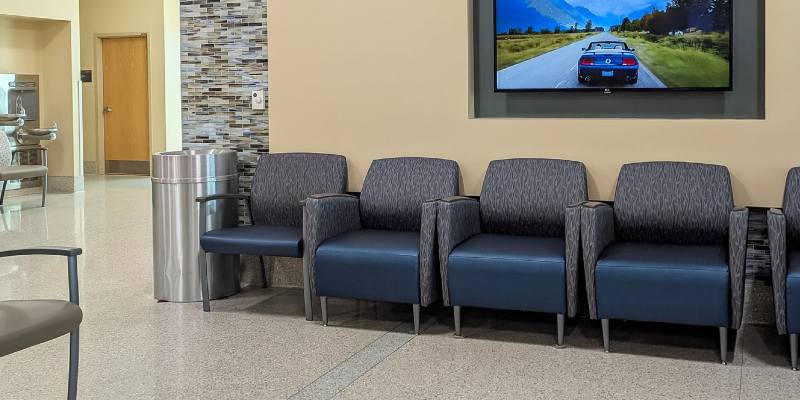How Can Health Care SMS Revolutionize Patient Engagement?
Secure, HIPAA-compliant healthcare SMS lets providers communicate swiftly, safely, and personally with patients — enhancing care quality, boosting engagement, and streamlining operations. In a connected, mobile-first era, text messaging isn’t just a tool for convenience — it’s a critical component of modern patient communication and healthcare marketing.

What is Healthcare SMS and Why It Matters
Healthcare SMS: Elevating Patient Care with BiteSMS.com
Healthcare SMS gives medical professionals a direct, reliable way to reach patients with important updates, reminders, and health information right on their mobile phones. Compared to other communication channels like email or phone calls, SMS has a radically higher engagement rate — with industry averages showing 98% open rates and around 90% of messages being read within the first few minutes. This immediacy is invaluable in clinical settings where timely action can improve outcomes, reduce operational delays, and increase patient satisfaction.
For hospitals, clinics, dental offices, and specialty providers, SMS offers the ability to maintain an ongoing dialogue with patients outside of traditional visits. Whether it’s confirming a physiotherapy appointment, delivering pre-procedure instructions, or reminding someone about an overdue wellness check-up, SMS for healthcare bridges the gap between the provider’s expertise and the patient’s real-world schedule. In a mobile-first society, this emphasis on speed and accessibility is quickly becoming a standard expectation in patient engagement strategies.
How SMS Works for Healthcare Providers
Message Delivery – Secure, HIPAA-compliant healthcare SMS platforms allow clinics and hospitals to send appointment reminders, health alerts, vaccination notifications, billing reminders, and post-visit care instructions instantly. Messages are routed through trusted telecommunications networks with delivery confirmations, so providers know their outreach is getting through.
Instant Receipt and Visibility – Unlike emails that often get buried in spam folders, text messages appear directly in a patient’s native messaging app. This ensures urgent updates — like a change to a surgical check-in time — are seen and acted upon almost immediately.
Two-Way Communication – One of the strongest advantages of healthcare texting is its interactivity. Patients aren’t just passive recipients; they can confirm appointments, request prescription refills, ask questions, and get quick responses directly from the care team. Two-way patient texting creates a continuous care loop that empowers individuals to take an active role in their health management.

Benefits of Healthcare SMS for Practices and Patients
Security, compliance, and efficiency underpin the benefits of secure texting in healthcare. The best healthcare SMS platforms are designed from the ground up to protect PHI (Protected Health Information) using encryption, access controls, and audit trails. This not only ensures regulatory compliance under HIPAA, but also reassures patients that their data remains confidential.
From an operational perspective, SMS for healthcare reduces administrative bottlenecks. Automated appointment reminders lower no-show rates, while bulk notifications save hours of manual calling. Many practices find that SMS integration frees up staff time, allowing them to focus on higher-value patient care activities instead of repetitive outreach.
On the patient side, SMS offers a familiar, low-effort way to communicate. When 97% of Americans own a cellphone, it’s safe to say text messaging is the most universally accessible channel for patient updates. This accessibility promotes inclusivity in care delivery, ensuring that patients across age groups and tech skill levels receive the same level of attention.
Common Healthcare SMS Use Cases
- Appointment Reminders – Healthcare SMS platforms have consistently shown the ability to reduce no-shows by up to 26% and increase attendance rates by as much as 67%. For providers, fewer missed appointments directly translates to more consistent care delivery and stable revenue.
- Secure Test Result Notifications – Instead of long delays waiting for a callback or logging into a portal, SMS can alert patients the moment their lab results or imaging findings are ready, guiding them securely to access them.
- Medication Adherence – For chronic care patients, regular text reminders can help reduce hospital readmissions due to missed doses, especially in conditions like diabetes or heart disease where consistency is critical.
- Emergency Alerts – Whether it’s informing about clinic closures, severe weather advisories, or public health emergencies, SMS ensures clear and immediate patient communication during urgent events.
By leveraging these use cases, healthcare organizations can deliver a higher standard of patient texting without placing a heavy burden on staff or resources.
How SMS Fits into Healthcare Marketing and Patient Engagement
Modern healthcare extends well beyond the clinic walls; it’s about maintaining ongoing patient relationships. Healthcare texting becomes a powerful marketing and engagement channel when used strategically. A consent-first approach is key — patients must opt in through online registration, in-person signups, or patient portals. This builds trust and ensures full compliance with privacy regulations. One prime example of this, is Mayo Clinic using SMS to connect with medical staff.
Personalization turns generic reminders into meaningful touchpoints. Addressing the patient by name, referencing their specific appointment, and tailoring health tips based on their profile increases the likelihood of engagement. Beyond direct care, SMS can be deployed for feedback surveys, wellness campaigns, patient education, and reputation management. A quick follow-up asking for an online review after a positive appointment experience can dramatically improve a practice’s visibility in search results. More experiences with SMS can be found here in this focus group study showing SMS in a real-world approach.
Integration with Healthcare Systems
Effective healthcare SMS isn’t a standalone tool — it’s most impactful when integrated with electronic health records (EHRs), practice management software, and telehealth platforms. This allows messages to be triggered automatically when certain events occur, such as booking an appointment, logging test results, or approving a procedure.
Advanced HIPAA-compliant SMS systems also offer analytics dashboards that track delivery rates, patient response times, and campaign results. These insights help providers fine-tune their outreach strategy, identify gaps, and measure ROI. Integration also ensures that all communication is archived and audit-ready, meeting both operational and legal requirements.

Key Features to Look for in a Healthcare SMS Solution
When choosing a platform, healthcare providers should seek:
- End-to-end encryption for all messages containing patient data
- Role-based access so only authorized staff can send and read messages
- Delivery tracking and reporting for transparency
- Customizable templates to standardize communication while allowing personalization
- Strong compliance standards covering HIPAA and applicable local laws
- Scalability to handle both one-on-one and mass patient texting without disruptions
By investing in a secure, reliable, and feature-rich healthcare SMS system, practices can position themselves as efficient, patient-centered, and technologically forward-thinking.
Subscribe to Our SMS Marketing Newsletter
Sign up for our SMS marketing newsletter and get the inside track on the most effective strategies used by healthcare and blue-collar industry-leading businesses. You'll receive exclusive access to practical tips, the latest industry trends, case studies, and success stories that can help supercharge your own SMS marketing campaigns.
If you're looking to maximize engagement, foster stronger customer relationships, and boost your bottom line, our SMS marketing newsletter is a resource you can't afford to miss out on.
